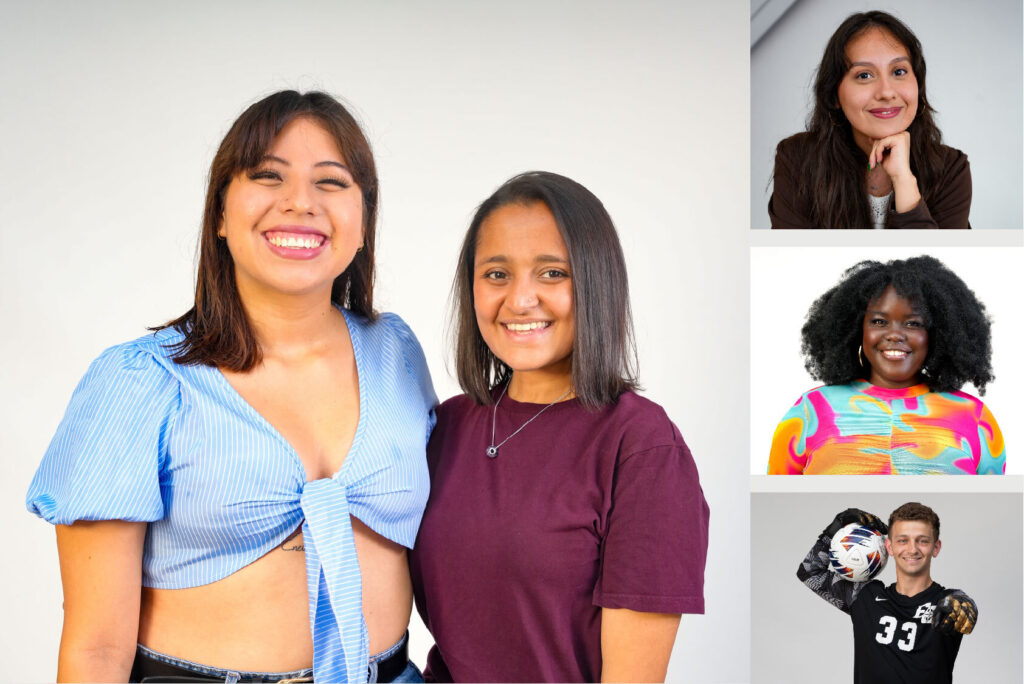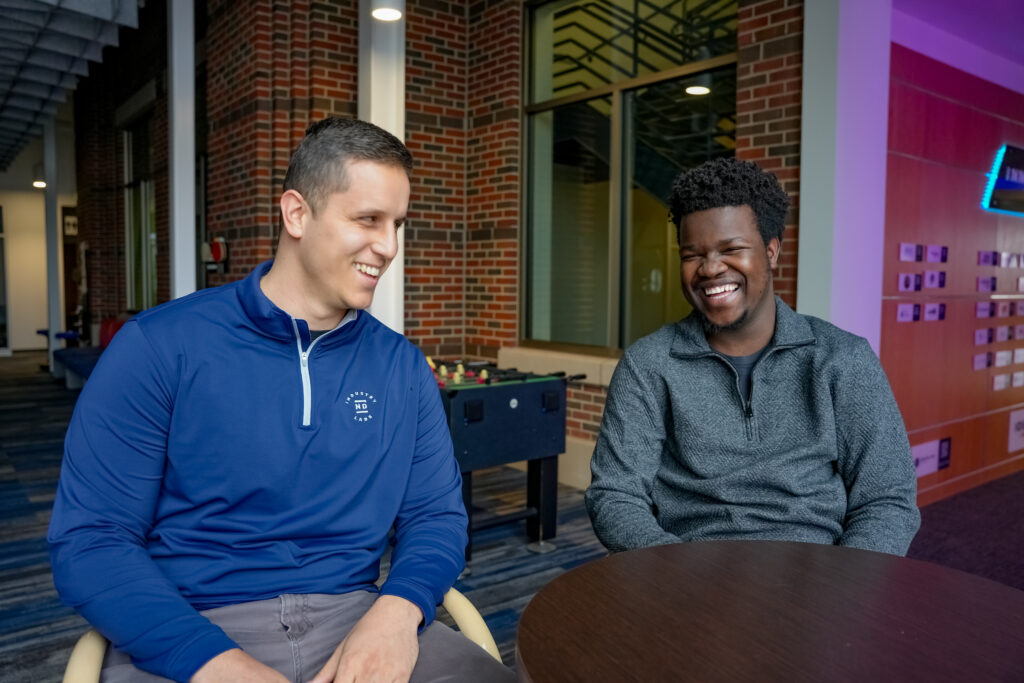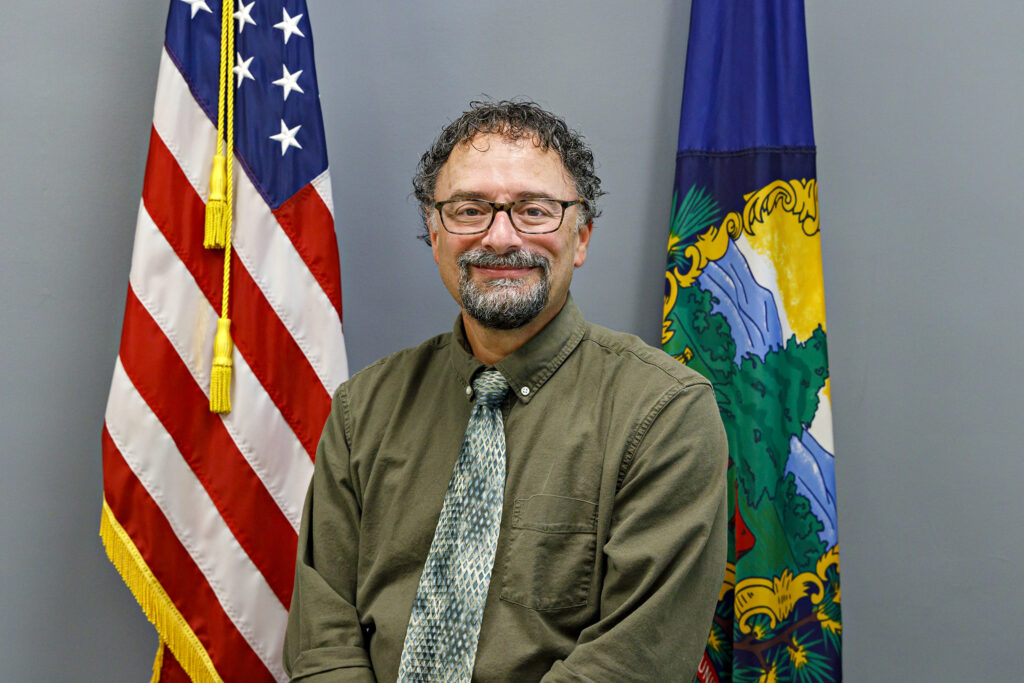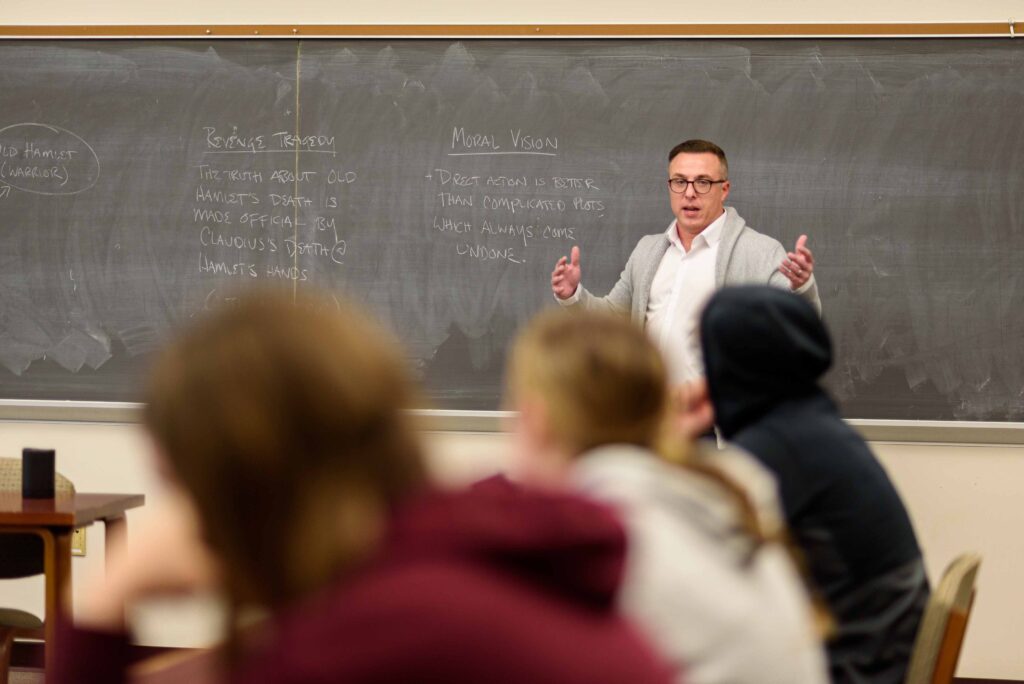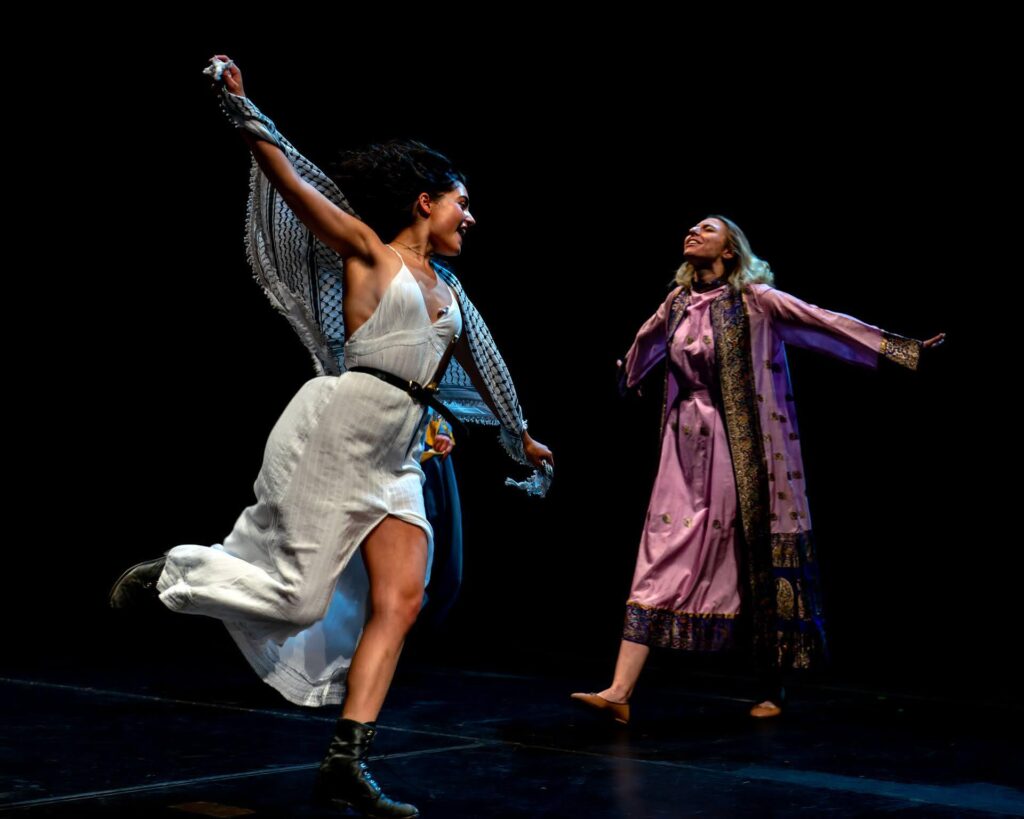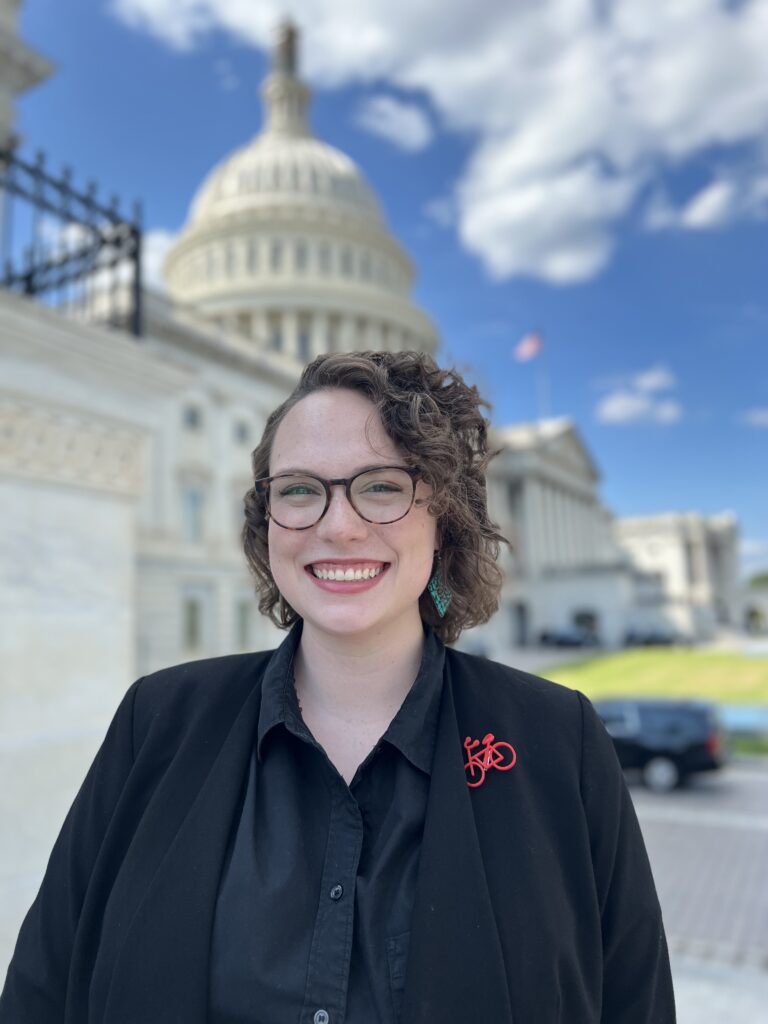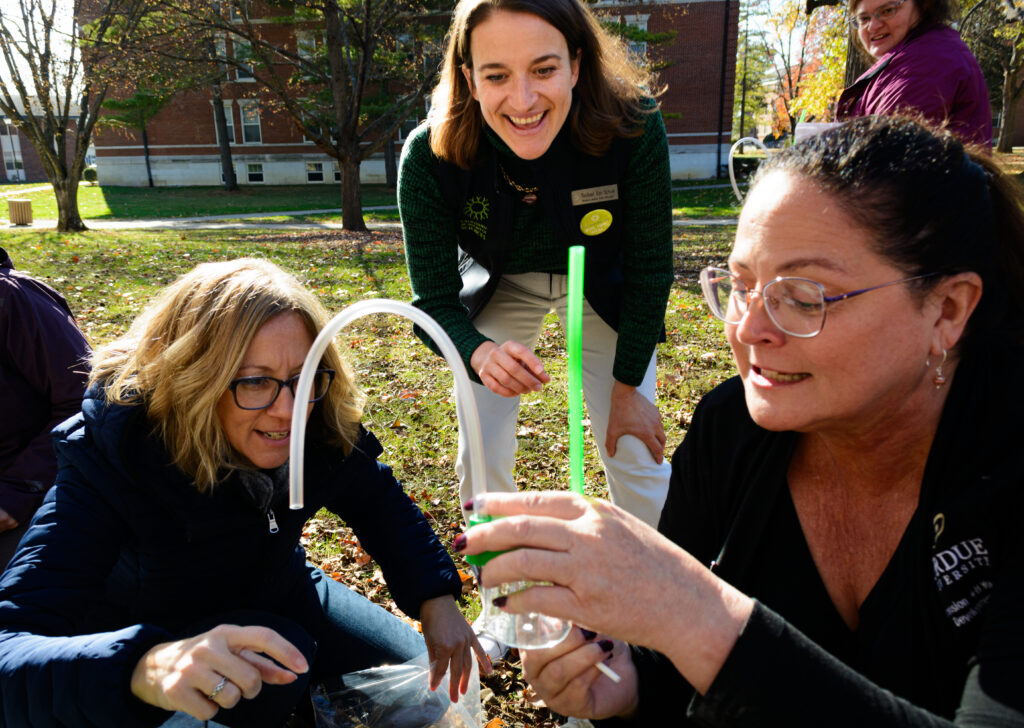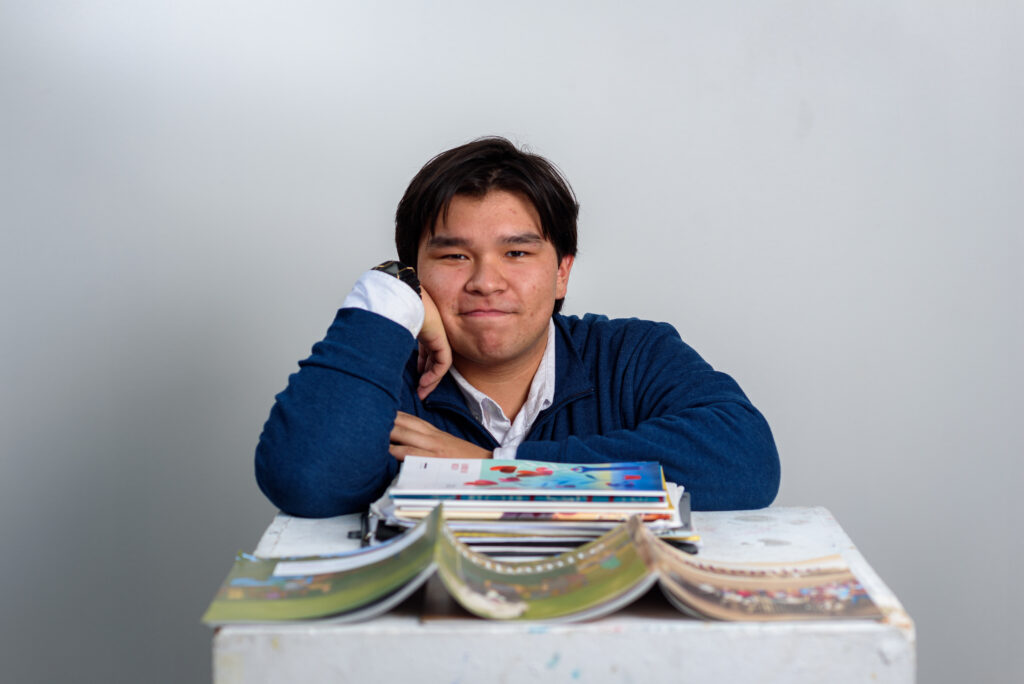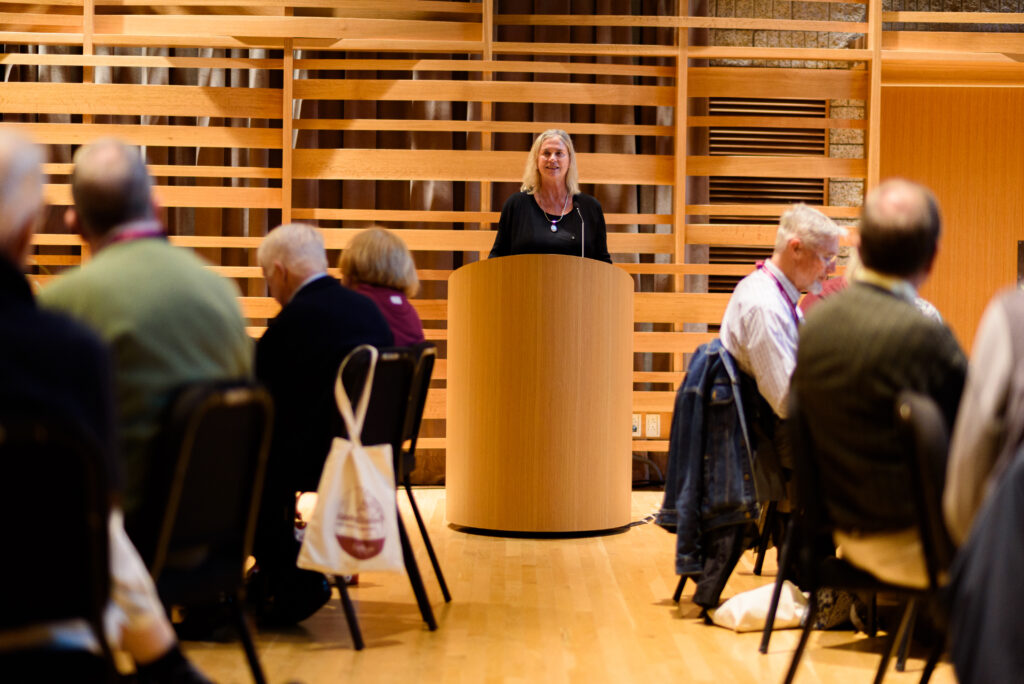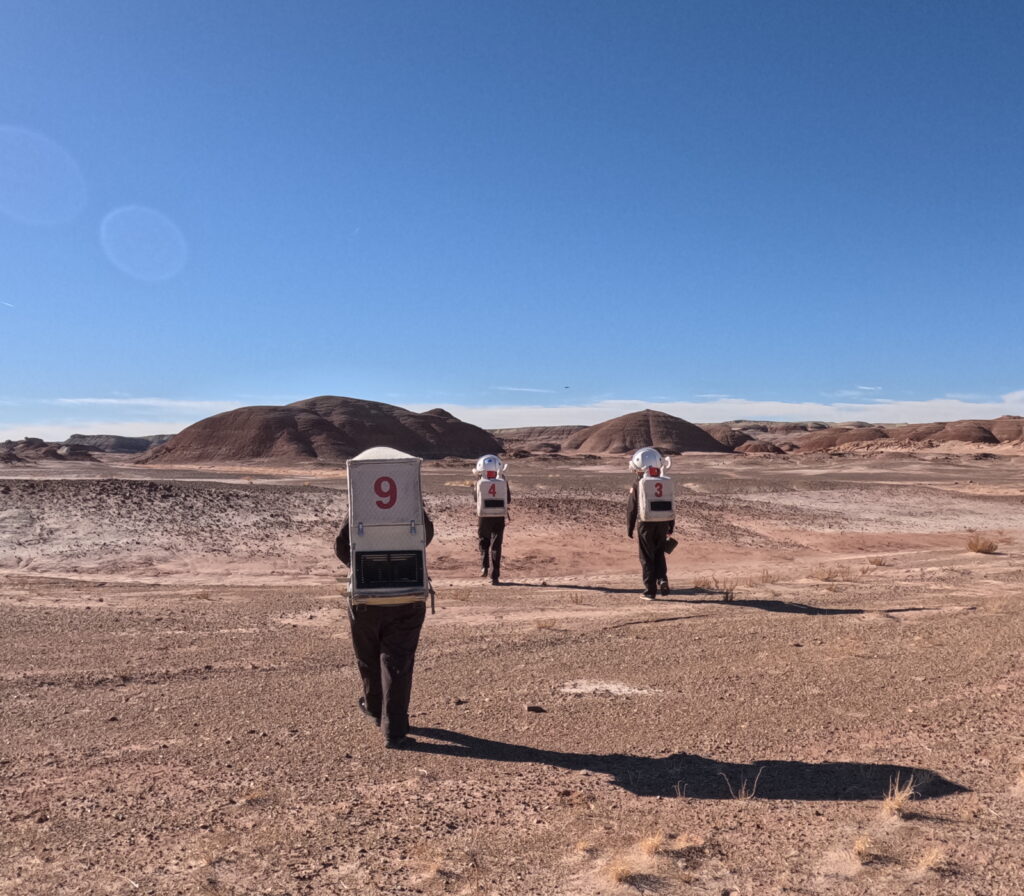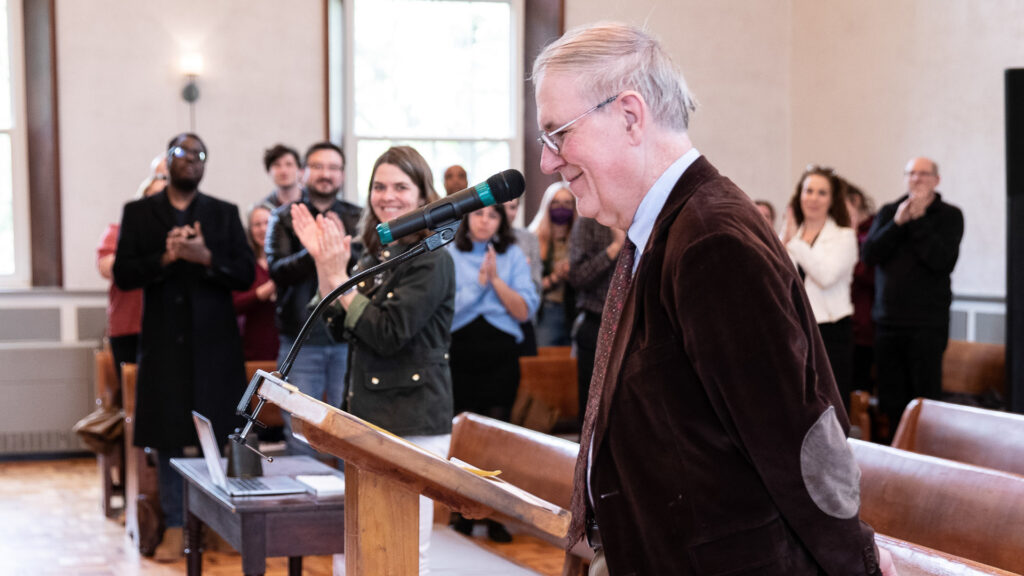Students develop “new mom” simulation and partner with leading nonprofit to help new mothers facing a public health crisis.
Imagine being poor with a newborn. You’re not just worried about how to feed the baby during the night or the parenting fatigue that’s triggered when the baby is inconsolable for the third night in a row and you’re aching to rest. You also need to worry about how to keep a roof over your head and eat healthily.
Maybe there are some government resources for you, but you may not be sure about exactly what help is available or how to access it. Or maybe the closest health clinic or grocery store is miles away and your transportation options are shaky. Those sorts of difficult conditions can lead to unhealthy outcomes, sometimes even heartbreaking ones.
For the last year, a team of Earlham students have been building a simulation, believed to be the first, to help others better understand Indiana’s woeful record of infant and maternal mortality. The project focuses on the challenges that those from underrepresented groups are facing in the state.
Jessie Pilewski, associate director of Earlham’s Center for Global Health, Ruthie Reichman, Johnette Williams, Kendra Parker, Mary Cora.
Recent statewide reports describe Indiana in a maternal crisis and estimate that about 25 percent of Indiana’s 92 counties have limited to no access to maternity healthcare services. Unsurprisingly, Indiana’s infant mortality rate is now the 7th highest in the country and the maternal mortality rate is the 3rd highest.
“We’re giving a voice to Indiana mothers and newborns who are underserved across the state,” said Ruthie Reichman, a rising senior from Los Angeles pursuing degrees in biology and theatre arts. She is the team leader of the growing project that has pulled in other Earlham students from all corners of the United States and several African countries.
To help people to think bigger about this complex problem, their thought is, you first need to think small. Understanding the circumstances of those being affected gives you a better sense of how to help. The simulation includes invented personas to do just that.
“Based on our research and meetings with public health professionals, we have developed profiles of a bi-racial disabled woman, 18-year-old undocumented woman working on citizenship, and a Black woman with a blood-clotting disorder who died because she didn’t receive the care she needed,” she said.
Recent statewide reports describe Indiana in a maternal crisis and estimate that about 25 percent of Indiana’s 92 counties are maternal care deserts, meaning they have limited to no access to maternity healthcare services. Unsurprisingly, Indiana’s infant mortality rate is now the 7th highest in the country and the maternal mortality rate is the 3rd highest.
“We all understand how important this work is,” Reichman said. “No one else is doing this that we know of. We are trying to raise awareness, and it’s really rewarding because we’re just college students.”
A startling reality sparks action
The project was inspired by Jasmine Carter ’20 who delivered a memorable presentation to students and faculty on campus about the lack of healthcare opportunities for Black women in Indiana.
“I had no idea the situation was that bad,” said Jessie Pilewski, associate director of Earlham’s Center for Global Health, who mentored Carter on her senior research.
“Everybody has heard of poverty simulations, but I immediately started thinking about a different kind of simulation to help people better understand the maternal care deserts in Indiana.”
The project became one of eight virtual learning opportunities for Earlham students at the onset of the coronavirus pandemic in spring 2020. Eventually, the project could result in Earlham students training public health leaders how to present the simulation to the public, and elected officials and other influencers across the state, Pilewski notes.
Earlham students would either lead the simulations or train others to do so.

An important partnership
The Center for Global Health partnered with the Indianapolis-based Little Timmy Project in fall 2020 to provide mentorship and context for the work. The organization was co-founded by Katie Kirkhoff in 2018 following the death of her five-week-old son, Timmy, of sudden infant death syndrome. She co-founded the organization with Steffany Stoeffler, her best friend from childhood, who has a background in nonprofit management.
“We are on a mission to improve the lives of pregnant persons and babies in Indiana,” Kirkhoff said. “The statistics are abysmal. Indiana is even a pro-life state!”
The Little Timmy Project has three primary initiatives. The Little Mom Stop is a mobile care unit that provides free supplies to those who are pregnant and connects them to resources, including lactation specialists, mental health providers, mentors and doctors. The Little Mom Shop is a permanent pantry for new parent essentials located at the Cornerstone Lutheran Church in downtown Indianapolis. Both Kirkhoff and Stoeffler are practicing doulas and recently started an endowed fund for Black and indigenous people of color who are interested in training to become certified.
“People do not know what resources exist,” Kirkhoff said, explaining that greater Indianapolis is especially needful of help: The area includes 13 zip codes with the highest rates of maternal deaths in the state.
The partnership with Earlham is a win-win for the Little Timmy Project, which wants to expand its impact.
For the students, The Little Timmy Project been a critical in connecting students with public health professionals across the state—deepening the students’ sense of purpose and increasing their understanding of the issues involved.
“We’ve been learning a lot,” Reichman said. “They’ve brought in so many people who work in this field—doulas, case workers, community health workers—and provided valuable feedback and advice.
“Something we heard over and over again is how important this work is,” she said. “Everyone we have met wants to stay involved because they believe in this project.”
“We’ve been learning a lot. They’ve brought in so many people who work in this field – doulas, case workers, community health workers—and provided valuable feedback and advice. Something we heard over and over again is how important this work is. … Everyone we have met wants to stay involved because they believe in this project.”
Ruthie Reichman
Story by Brian Zimmerman. Photos by Dan Oetting and courtesy of the Little Timmy Project.
Like what you’ve read? Share this article with your network.


